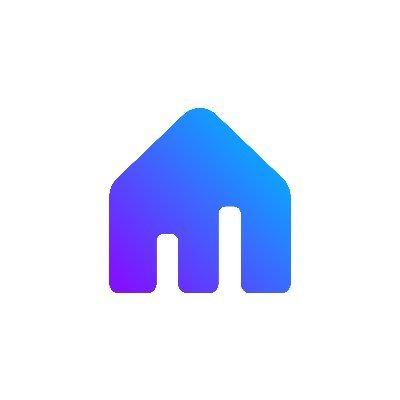Invest in single-family homes
Buy shares in vacation rental properties
Investments
$56,000
The minimum investment on Doorvest is a 25% down payment on a home, averaging $56,250 based on the average home price of $225,000.
Investments
$100
Fundhomes sets its minimum investment threshold at $100, with shares available at $10.
Moderate Risk
3/5
Investing with Doorvest involves risks such as market volatility, economic changes, and property-specific issues. While the platform aims to manage these effectively, outcomes can be uncertain, and investors should carefully consider their risk tolerance and conduct due diligence before investing.
Moderate Risk
3/5
Investing in Fundhomes carries risks such as potential loss of capital, market fluctuations, and regulatory changes affecting profitability. Investments are generally illiquid with a long-term exit strategy, and early withdrawal may result in penalties. A secondary market to improve liquidity is under consideration but not guaranteed.
Minimum Liquidity
1/5
Doorvest allows investors to sell their homes back to the platform, requiring them to connect with a client partner for more information on the process.
Minimum Liquidity
1/5
Fundhomes offers liquidity options including automatic share sales when properties are sold (5-10 years), a secondary market for selling shares to other investors, and a buyback program, with potential early sale penalties within the first year.
Receive new reviews from Fintorial
High Return
18 %
Doorvest reports an average annual investment return of 18%, accounting for rental income, property appreciation, and mortgage leveraging.
Moderate Return
11.36 %
Investors in Fundhomes can expect cash dividends from rental income, projected at a hypothetical rate of 6.62% per year, and property appreciation, estimated at 4.74% per year, upon sale within 5-10 years. This totals a hypothetical annual return of 11.36%.
Long-term Investment
5-30 years
Doorvest focuses on long-term investments in single-family rentals, generally suggesting a commitment of several years to decades, based on real estate appreciation and rental income.
Long-term Investment
5-10 years
The investment time horizon at Fundhomes is typically 5 to 10 years, focusing on long-term gains from rental income and property appreciation.
Who can invest
United States
To invest with Doorvest, you need to be in the U.S. or able to sign documents at a U.S. Embassy.
Who can invest
United States
To invest in Fundhomes, one must be a U.S. Citizen or a resident of the U.S. with a valid Social Security Number.
Moderate Volatility
3/5
Real estate assets on Doorvest can experience volatility due to economic shifts, interest rate changes, and local market trends, potentially affecting investment values and posing risks for short-term investors.
Moderate Volatility
3/5
Fundhomes' vacation rental properties face real estate market volatility, with valuations influenced by economic shifts, interest rates, and regulatory changes.
Regulation and audits
TREC Regulated
Doorvest complies with the Texas Real Estate Commission (TREC) consumer protection notice, indicating adherence to state-level real estate transaction standards. It does not provide details on broader financial regulations or audits, focusing more on real estate industry compliance than securities regulation.
Regulation and audits
SEC Regulated
Fundhomes utilizes Regulation A for public offerings, enabling investors to buy shares in Series LLCs that each own a vacation rental property. This approach grants investors partial ownership in a property, with all details outlined in SEC-filed offering circulars.
Insurance
Yes
Doorvest protects rental investments with homeowner's insurance, covering physical structure damage and potentially extending to personal belongings and medical expenses. This coverage is a mortgage lender requirement, safeguarding against various damages, though investors should be aware of any coverage limitations.
Insurance
Yes
Fundhomes insures its properties against physical damage, but this doesn't cover market risks or regulatory changes affecting property values. Insurance limits may also not match property market values.
Payouts
Rental Income
Doorvest offers rental income as returns to investors, bolstered by a Rent Guarantee that includes vacancy and non-payment protection for the first three months, with an option to extend up to 12 months. Additionally, a Renovation Guarantee covers repair costs for the first year of ownership.
Payouts
Dividends
Investors in Fundhomes receive quarterly dividends derived from the net rental income of vacation rental properties, after deducting operational expenses. These dividends reflect a portion of the property's profitability but are not guaranteed and can fluctuate based on occupancy rates and market conditions.
Withdrawals
To get their money back, Doorvest investors need to sell their property, with the timeline depending on market conditions and the sale process. The process is initiated through Doorvest, and funds are received after the property is sold and the transaction is completed.
Withdrawals
Investors in Fundhomes can receive their investment back when the property is sold, usually within 5-10 years, or by selling their shares earlier on a secondary market, depending on demand.
Extra Fees
Yes
Doorvest employs a fee model, deriving revenue from a portion of the monthly rental income and margins on home sales, always at fair market value.
Extra Fees
Yes
Fundhomes earns through fees for property and asset management. This includes handling vacation rental operations like maintenance and guest services, as well as overseeing investment strategies and performance.
Taxes
Tax Form
Doorvest facilitates tax compliance by providing investors with all necessary documentation for tax filing, related to real estate investment income and expenses.
Taxes
Tax Form
Fundhomes provides K-1 Tax Forms for each investment property, detailing investors' share of income, deductions, and credits. Typically, these forms are issued by March 15th each year, with an IRS extension deadline of September 15th if needed.

